Inflammatory Bowel Disease
How to submit an article:
- Registered users can submit any published journal article that has a unique DOI (Digital Object Identifier) name or link to Research Hub.
- For example, you can paste the full DOI link:
https://doi.org/10.1109/5.771073or just the DOI name:10.1109/5.771073into the field above and click submit. - The person who is first to submit a valid article to Research Hub will forever be credited for it, and every article submission earns you +6 Research Points.
Also known as: IBD
Sub-Topics:
Related Topics
Published research studies are articles that present the findings of original research that has undergone a peer-review process and has been made publicly available in scholarly journals, books or other media.
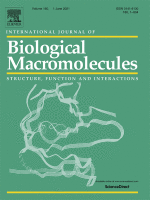
Tremella aurantialba polysaccharides alleviate ulcerative colitis in mice by improving intestinal barrier via modulating gut microbiota and inhibiting ferroptosis
2024 Nov International Journal of Biological Macromolecules Peng G, Wang S, Zhang H, Xie F, Jiao L, Yuan Y, et al.
Experimental Study Animal Study Gut Microbiota Ulcerative Colitis Intestinal Barrier Snow FungusA polysaccharide from Tremella aurantialba improves ulcerative colitis symptoms by targeting epithelial cell ferroptosis and modulating the gut microbiota.
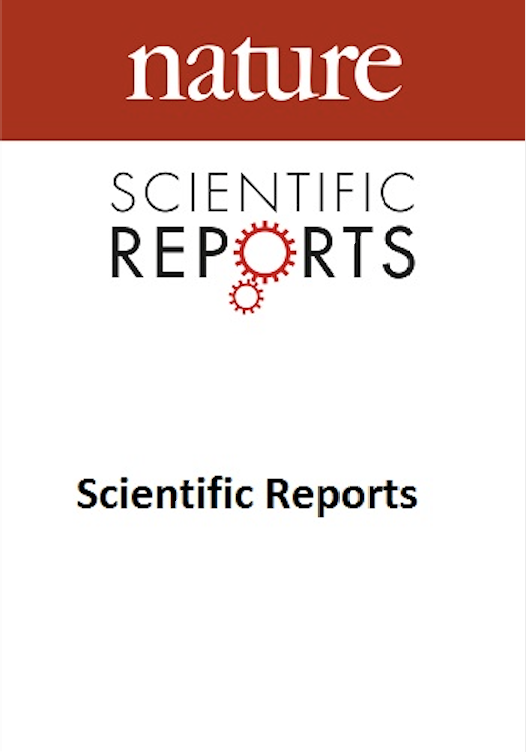
Effectiveness of a novel diet in attenuation of clinical activity of disease in patients with ulcerative colitis: a randomized, clinical trial
2024 Jun 14 Scientific Reports Narimani B, Sadeghi A, Daryani NE, Shahrokh S, Nilghaz M, Ghods M, et al.
Randomised Controlled Trial Low FODMAP Ulcerative ColitisA combined Mediterranean, low-FODMAP diet along with partial enteral nutrition has shown promise in reducing ulcerative colitis activity and improving patients' quality of life.

Carrageenan in the Diet: Friend or Foe for Inflammatory Bowel Disease?
2024 Jun 06 Nutrients Kimilu N, Gładyś-Cieszyńska K, Pieszko M, Mańkowska-Wierzbicka D, Folwarski M
Review Article Inflammatory Bowel Disease CarrageenanCarrageenan, a common food additive, potentially exacerbates Inflammatory Bowel Disease (IBD) symptoms by altering gut microbiota, inducing intestinal permeability, and triggering inflammation.
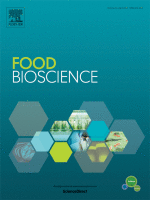
Therapeutic potential of seaweed extracts: In vitro and in vivo studies on alleviating inflammation and enhancing intestinal barrier function.
2024 Jun Food Bioscience Kim YR, Park S, Kim JY
Saccharina japonica, Capsosiphon fulvescens, Hizikia fusiforme, and Chondrus ocellatus seaweed extracts showed improvements in inflammation-induced Caco-2 cell models and DSS-induced mice, indicating their potential as treatments for inflammatory bowel diseases.
Animal Study Seaweed Inflammation Intestinal Barrier
Carrageenan as a Potential Factor of Inflammatory Bowel Diseases
2024 Apr 30 Nutrients Komisarska P, Pinyosinwat A, Saleem M, Szczuko M
Animal Study Inflammatory Bowel Diseases CarrageenanCarrageenan, a common food additive, has dual aspects, being both useful in drug delivery and food printing, while potentially harmful via inducing intestinal inflammatory conditions.
Research insights are moderated by the Research Hub team and offer an at-a-glance overview of interesting research findings.

2024 International Journal of Biological Macromolecules
A polysaccharide from Tremella aurantialba improves ulcerative colitis symptoms by targeting epithelial cell ferroptosis and modulating the gut microbiota.
Experimental Study Gut Microbiota Intestinal Barrier Snow Fungus Ulcerative Colitis
Tremella aurantialba polysaccharides alleviate ulcerative colitis in mice by improving intestinal barrier via modulating gut microbiota and inhibiting ferroptosis
Peng G, Wang S, Zhang H, Xie F, Jiao L, Yuan Y, et al.

2024 Scientific Reports
A combined Mediterranean, low-FODMAP diet along with partial enteral nutrition has shown promise in reducing ulcerative colitis activity and improving patients' quality of life.
Randomised Controlled Trial Low FODMAP Ulcerative Colitis
Effectiveness of a novel diet in attenuation of clinical activity of disease in patients with ulcerative colitis: a randomized, clinical trial
Narimani B, Sadeghi A, Daryani NE, Shahrokh S, Nilghaz M, Ghods M, et al.

2024 Nutrients
Carrageenan, a common food additive, potentially exacerbates Inflammatory Bowel Disease (IBD) symptoms by altering gut microbiota, inducing intestinal permeability, and triggering inflammation.
Review Article Carrageenan
Carrageenan in the Diet: Friend or Foe for Inflammatory Bowel Disease?
Kimilu N, Gładyś-Cieszyńska K, Pieszko M, Mańkowska-Wierzbicka D, Folwarski M

2024 Nutrients
Carrageenan, a common food additive, has dual aspects, being both useful in drug delivery and food printing, while potentially harmful via inducing intestinal inflammatory conditions.
Animal Study Carrageenan Inflammatory Bowel Diseases
Carrageenan as a Potential Factor of Inflammatory Bowel Diseases
Komisarska P, Pinyosinwat A, Saleem M, Szczuko M

2024 Heliyon
Acupuncture and moxibustion therapies have shown effectiveness in treating ulcerative colitis according to the summarised-findings of various systematic reviews and meta-analyses.
Systematic Review Acupuncture Moxibustion Ulcerative Colitis
Effects of acupuncture and moxibustion on ulcerative colitis: An overview of systematic reviews
Wang D, Wang Q, Wang Y, Li T, Tian M
Review Articles
Review articles summarise and critically evaluate the current state of research on a specific topic or field by synthesising multiple primary research studies.

Carrageenan in the Diet: Friend or Foe for Inflammatory Bowel Disease?
2024 Jun 06 Nutrients Kimilu N, Gładyś-Cieszyńska K, Pieszko M, Mańkowska-Wierzbicka D, Folwarski M
Review Article Inflammatory Bowel Disease CarrageenanCarrageenan, a common food additive, potentially exacerbates Inflammatory Bowel Disease (IBD) symptoms by altering gut microbiota, inducing intestinal permeability, and triggering inflammation.

Effects of acupuncture and moxibustion on ulcerative colitis: An overview of systematic reviews
2024 Mar Heliyon Wang D, Wang Q, Wang Y, Li T, Tian M
Systematic Review Moxibustion Acupuncture Ulcerative ColitisAcupuncture and moxibustion therapies have shown effectiveness in treating ulcerative colitis according to the summarised-findings of various systematic reviews and meta-analyses.
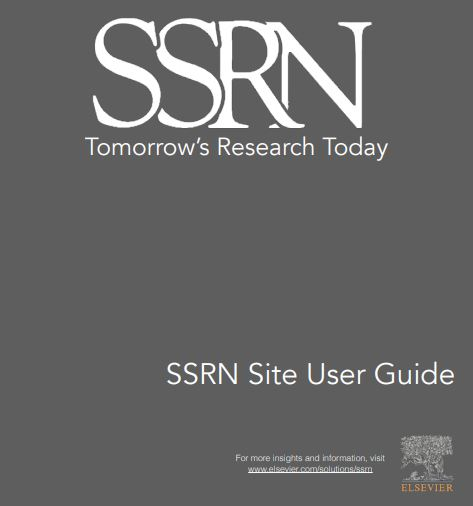
Efficacy and Safety of Different Acupuncture Therapies for Patients with Ulcerative Colitis:A Systematic Review And Network Meta-Analysis
2024 Jan SSRN Electronic Journal Zhang X, Yang S, Jin Y, Cheng X, Lu H, Wu H, et al.
Meta-Analysis Systematic Review Moxibustion Acupuncture Ulcerative ColitisDiverse acupuncture therapies, especially moxibustion, emerged as superior methods for alleviating ulcerative colitis symptoms in clinical practice.
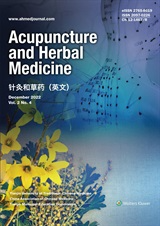
Acupuncture for Crohn’s disease: current status and future perspectives
2023 Oct 16 Acupuncture and Herbal Medicine Bao C, Zhang J, Wu H
Acupuncture is recognized internationally for its benefits in improving clinical symptoms, maintaining long-term remission, and regulating intestinal microbiota and immune responses in patients with Crohn's disease.
Theoretical Article Review Article Acupuncture Crohn's Disease
Repairing the intestinal mucosal barrier of traditional Chinese medicine for ulcerative colitis: a review
2023 Oct 24 Frontiers in Pharmacology Zong Y, Meng J, Mao T, Han Q, Zhang P, Shi L
Theoretical Article Review Article Ulcerative ColitisTraditional Chinese medicine has been found to effectively treat ulcerative colitis by repairing various components of the damaged intestinal mucosal barrier.
Clinical Trials
Clinical trials are research studies that involve people and are conducted to evaluate the safety and efficacy of new treatments or interventions, such as drugs, medical devices, or behavioural therapies.

Effectiveness of a novel diet in attenuation of clinical activity of disease in patients with ulcerative colitis: a randomized, clinical trial
2024 Jun 14 Scientific Reports Narimani B, Sadeghi A, Daryani NE, Shahrokh S, Nilghaz M, Ghods M, et al.
Randomised Controlled Trial Low FODMAP Ulcerative ColitisA combined Mediterranean, low-FODMAP diet along with partial enteral nutrition has shown promise in reducing ulcerative colitis activity and improving patients' quality of life.

Anti-Inflammatory Diet Prevents Subclinical Colonic Inflammation and Alters Metabolomic Profile of Ulcerative Colitis Patients in Clinical Remission
2022 Aug 11 Nutrients Keshteli A, Valcheva R, Nickurak C, Park H, Mandal R, van Diepen K, et al.
Randomised Controlled Trial Anti-Inflammatory Ulcerative ColitisDietary modifications, combining increased intake of anti-inflammatory foods and decreased intake of pro-inflammatory foods, effectively impede subclinical inflammation in ulcerative colitis patients in clinical remission.
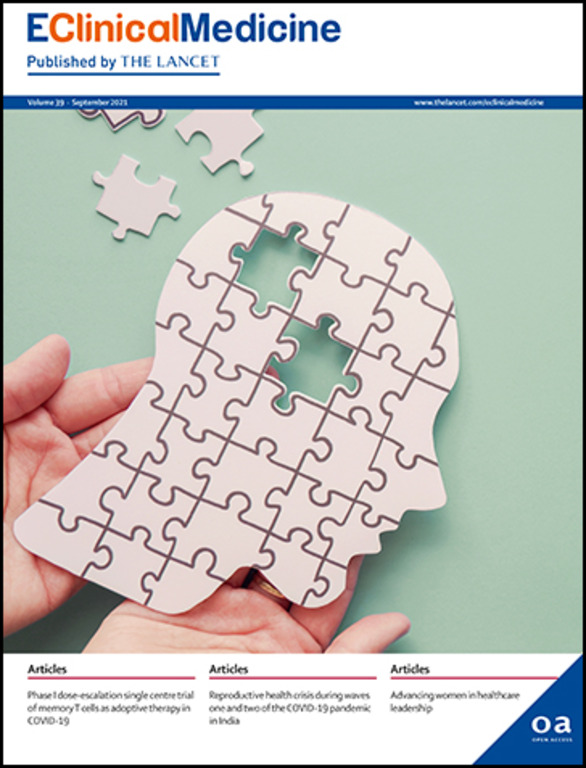
Acupuncture improves the symptoms, intestinal microbiota, and inflammation of patients with mild to moderate Crohn's disease: A randomized controlled trial
2022 Mar EClinicalMedicine Bao C, Wu L, Wang D, Chen L, Jin X, Shi Y, et al.
Randomised Controlled Trial Acupuncture Crohn's DiseaseAcupuncture effectively induced and sustained remission in active Crohn's disease patients, linked to an increase in anti-inflammatory gut bacteria and improved intestinal barrier.
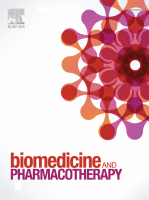
Randomised clinical trial: Efficacy and safety of Qing-Chang-Hua-Shi granules in a multicenter, randomized, and double-blind clinical trial of patients with moderately active ulcerative colitis
2021 Jul Biomedicine & Pharmacotherapy Shen H, Zhang S, Zhao W, Ren S, Ke X, Gu Q, et al.
Randomised Controlled Trial Qing Chang Hua Shi Ulcerative ColitisQing-Chang-Hua-Shi (QCHS) granules, a Chinese herbal formula, have shown significant efficacy in improving clinical remission and mucosal healing in moderately active ulcerative colitis patients.
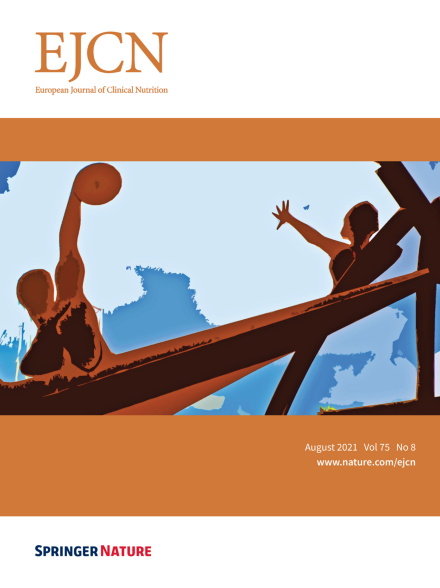
The effects of extra virgin olive oil and canola oil on inflammatory markers and gastrointestinal symptoms in patients with ulcerative colitis
2020 Jan 03 European Journal of Clinical Nutrition Morvaridi M, Jafarirad S, Seyedian SS, Alavinejad P, Cheraghian B
Clinical Study Randomised Controlled Trial Ulcerative Colitis Extra Virgin Olive OilExtra virgin olive oil (EVOO) intake can reduce inflammatory markers and improve gastrointestinal symptoms in patients with Ulcerative Colitis.
Study Protocols
Published study protocols are detailed plans that outline the objectives, methodology, statistical analyses, and organisation of a research study that have been made publicly available for others to review and use as a reference.
Presentation Slides

Experimental Study
A polysaccharide from Tremella aurantialba improves ulcerative colitis symptoms by targeting epithelial cell ferroptosis and modulating the gut microbiota.
Peng G, Wang S, Zhang H, Xie F, Jiao L, Yuan Y, Ma C, Wu H, Meng Z

Randomised Controlled Trial
A combined Mediterranean, low-FODMAP diet along with partial enteral nutrition has shown promise in reducing ulcerative colitis activity and improving patients' quality of life.
Narimani B, Sadeghi A, Daryani NE, Shahrokh S, Nilghaz M, Ghods M, Shafiee M, Shahparvari MR, Hekmatdoost A

Review Article
Carrageenan, a common food additive, potentially exacerbates Inflammatory Bowel Disease (IBD) symptoms by altering gut microbiota, inducing intestinal permeability, and triggering inflammation.
Kimilu N, Gładyś-Cieszyńska K, Pieszko M, Mańkowska-Wierzbicka D, Folwarski M

Animal Study
Carrageenan, a common food additive, has dual aspects, being both useful in drug delivery and food printing, while potentially harmful via inducing intestinal inflammatory conditions.
Komisarska P, Pinyosinwat A, Saleem M, Szczuko M

Systematic Review
Acupuncture and moxibustion therapies have shown effectiveness in treating ulcerative colitis according to the summarised-findings of various systematic reviews and meta-analyses.
Wang D, Wang Q, Wang Y, Li T, Tian M

Meta-Analysis
Diverse acupuncture therapies, especially moxibustion, emerged as superior methods for alleviating ulcerative colitis symptoms in clinical practice.
Zhang X, Yang S, Jin Y, Cheng X, Lu H, Wu H, Ji J

Theoretical Article
Traditional Chinese medicine has been found to effectively treat ulcerative colitis by repairing various components of the damaged intestinal mucosal barrier.
Zong Y, Meng J, Mao T, Han Q, Zhang P, Shi L
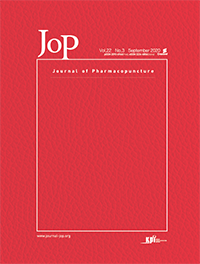
Meta-Analysis
Acupuncture combined with moxibustion has shown significant benefits in the treatment of mild to moderate Crohn's disease.
Bae JH, Kang SY, You SE, Jeong HI, Jang S, Kim KH

Meta-Analysis
Acupoint application has been proven to be a safe and effective method for the treatment of ulcerative colitis.
Tong Y, Yu Y, Yin S, Lin S, Chen Y, Su X

Meta-Analysis
Acupuncture demonstrates a positive therapeutic effect on inflammatory bowel disease (IBD) by effectively regulating associated inflammatory factors.
Yang X, He M, Tang Q, Wang Z, Jin D, Wu X, Yang Y, Ma D, Sun M, Li T
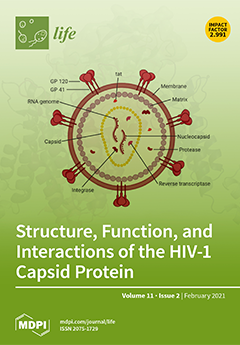
Systematic Review
Seaweed polysaccharides, especially those found in the cell walls of marine algae, hold significant potential as a natural, complementary treatment for Inflammatory Bowel Disease (IBD).
Liyanage NM, Nagahawatta DP, Jayawardena TU, Jeon YJ
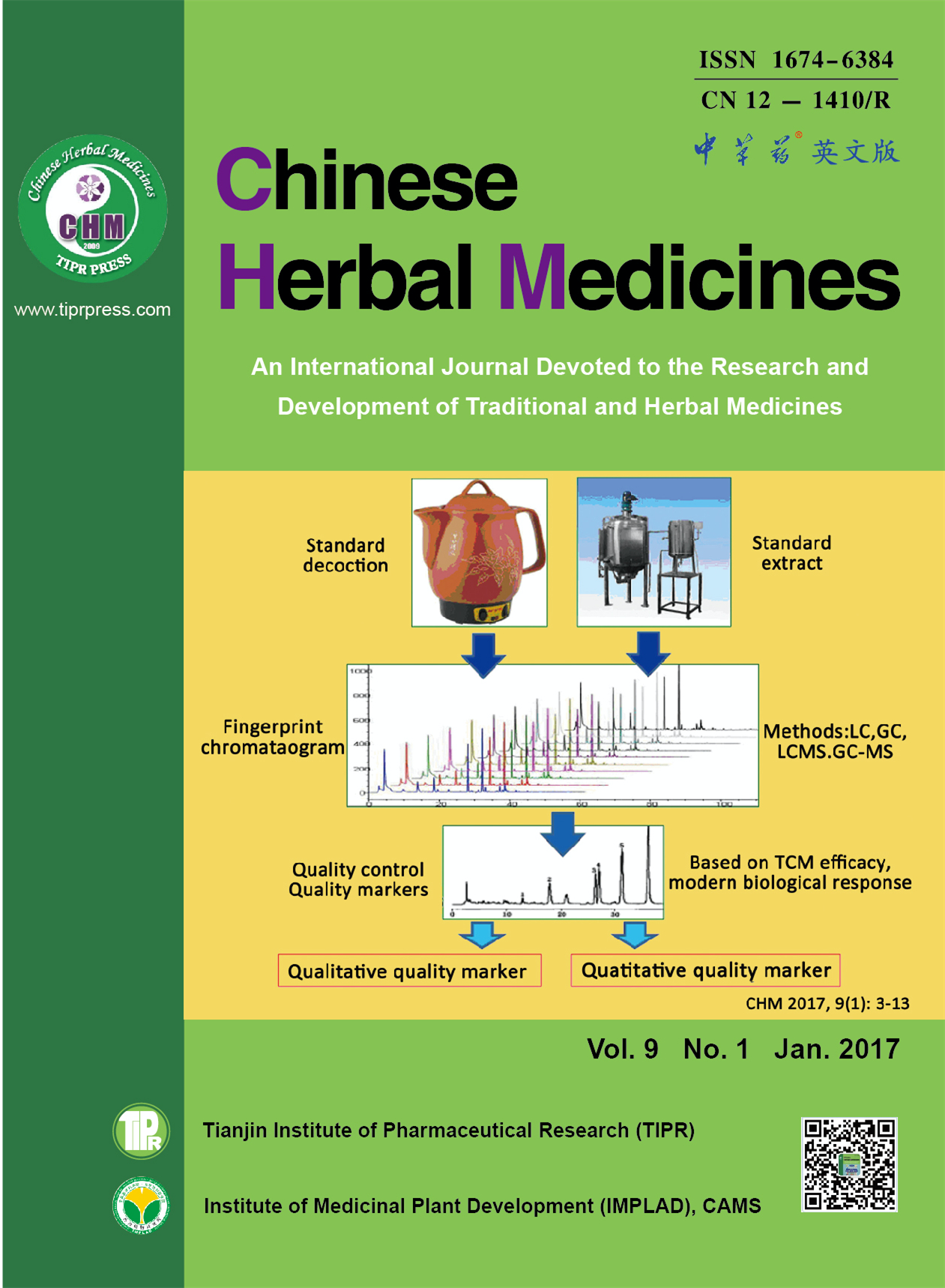
Review Article
Chinese herbal medicines could potentially relieve ulcerative colitis by moderating the gut microbiota and intestinal immunity loop.
Yang Y, Wang Y, Zhao L, Wang F, Li M, Wang Q, Luo H, Zhao Q, Zeng J, Zhao Y, Du F, Chen Y, Shen J, Wei S, Xiao Z, Wu X
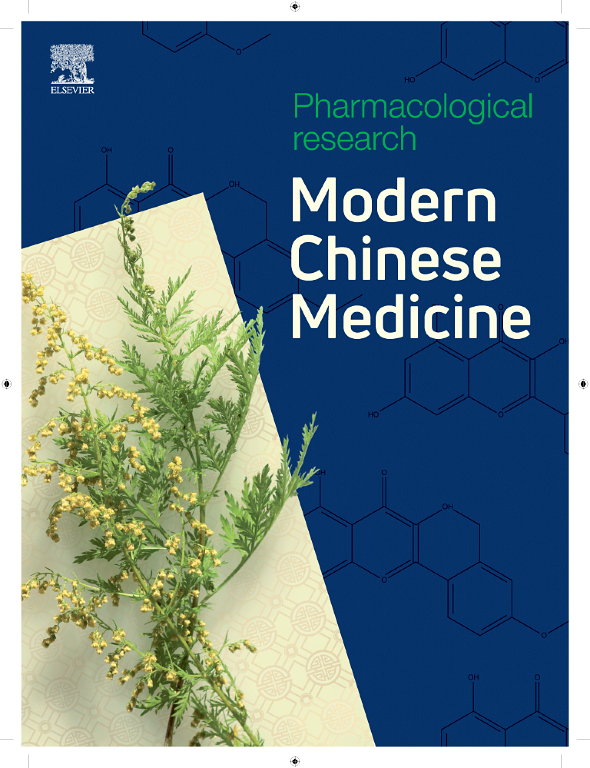
Meta-Analysis
Patients with ulcerative colitis (UC) experienced greater clinical improvement and fewer adverse effects when treated with a combination of Traditional Chinese and Western medicine compared to Western medicine alone.
Chen S, Ji G, Liu X, Yang M, Zhang Y, Cao J, Pan Y

Review Article
Polysaccharides from natural food sources like fungi and plants can significantly enhance intestinal health and prevent ulcerative colitis (UC) through various physiological activities.
Pan X, Yin M, Guo M, Niu X, Han L

Randomised Controlled Trial
Dietary modifications, combining increased intake of anti-inflammatory foods and decreased intake of pro-inflammatory foods, effectively impede subclinical inflammation in ulcerative colitis patients in clinical remission.
Keshteli A, Valcheva R, Nickurak C, Park H, Mandal R, van Diepen K, Kroeker K, van Zanten S, Halloran B, Wishart D, Madsen K, Dieleman L

Review Article
Chinese Herbal Medicine Prescriptions (CHMPs) have demonstrated to be potentially effective in managing Inflammatory Bowel Disease (IBD) with a comprehensive, holistic approach.
Zhang S, Luo H, Tan D, Peng B, Zhong Z, Wang Y
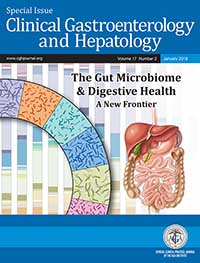
Cohort Study
Higher consumption of ultra-processed food is linked to an increased risk of developing Crohn's disease, with no consistent connection observed with ulcerative colitis.
Lo CH, Khandpur N, Rossato SL, Lochhead P, Lopes EW, Burke KE, Richter JM, Song M, Ardisson Korat AV, Sun Q, Fung TT, Khalili H, Chan AT, Ananthakrishnan AN

Cohort Study
Shenling Baizhu San (SBS), combined with mesalamine, can treat ulcerative colitis effectively by changing gut microbiota structures and increasing tryptophan metabolite levels.
Jiao C, Zhang Q, Yang M, Ma J, Zhao X, Tang N, Dai M, Li Q, Jiang Z, Huang X, Zhang H, Sun L
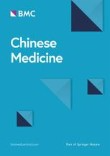
Review Article
Chinese herbal medicine interventions, particularly those based on the Bai-Tou-Weng-Tang and Shen-Ling-Bai-Zhu-San formulas, show promise in treating Ulcerative Colitis.
Zhang X, Zhang L, Chan JCP, Wang X, Zhao C, Xu Y, Xiong W, Chung WC, Liang F, Wang X, Miao J, Bian Z
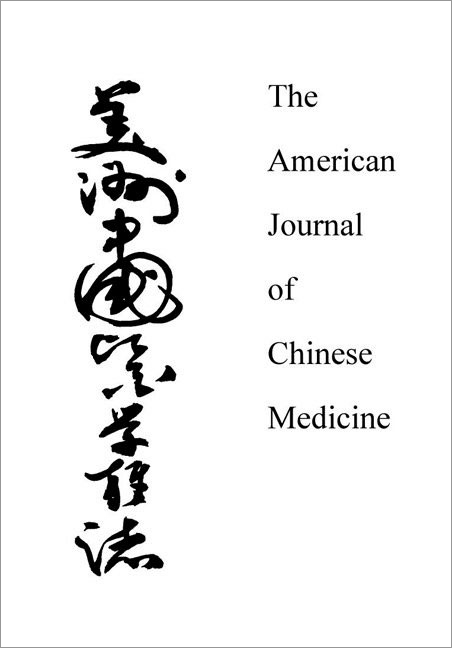
Review Article
Acupuncture shows promising results in managing autoimmune diseases by potentially regulating immune responses.
Jing Wang, Fangyi Zhu, Wei Huang, Zhengyi Chen, Ping Zhao, Yanting Lei, Yumei Liu, Xijun Liu, Bo Sun, Hulun Li

Meta-Analysis
Probiotics combined with traditional Chinese medicine have shown higher rates of efficiency in the treatment of ulcerative colitis than when each is used individually.
Hu Y, Ye Z, She Y, Li L, Wu M, Qin K, Li Y, He H, Hu Z, Yang M, Lu F, Ye Q

Randomised Controlled Trial
Acupuncture effectively induced and sustained remission in active Crohn's disease patients, linked to an increase in anti-inflammatory gut bacteria and improved intestinal barrier.
Bao C, Wu L, Wang D, Chen L, Jin X, Shi Y, Li G, Zhang J, Zeng X, Chen J, Liu H, Wu H

Review Article
Acupuncture can regulate both innate and adaptive immunity of IBD patients, including the balance of Th17/Treg and Th1/Th2 cells, and also modulate intestinal flora.
Liu Z, Jiao Y, Yu T, Wang H, Zhang Y, Liu D, Xu Y, Guan Q, Lu M

Review Article
Goji berries, notably their polysaccharides, exhibit protective effects against inflammatory bowel disease through the preservation of healthy gut microbiota.
Sun Q, Du M, Kang Y, Zhu MJ

Systematic Review
Chinese medicine's unique immune regulation, intestinal flora regulation, and improved intestinal barrier function offer new approaches to managing chronic Inflammatory Bowel Disease.
Yang L, Luo H, Tan D, Zhang S, Zhong Z, Wang S, Vong CT, Wang Y

Systematic Review
Chinese medicine presents unique advantages in managing Inflammatory Bowel Disease (IBD) through immune regulation, intestinal flora regulation, and improvement of intestinal barrier function.
Yang L, Luo H, Tan D, Zhang S, Zhong Z, Wang S, Vong CT, Wang Y

Meta-Analysis
Traditional Chinese Medicine may potentially be a viable treatment option for ulcerative colitis, but its effectiveness varies depending on the method of administration applied.
Sun YX, Wang X, Liao X, Guo J, Hou WB, Wang X, Liu JP, Liu ZL

Randomised Controlled Trial
Qing-Chang-Hua-Shi (QCHS) granules, a Chinese herbal formula, have shown significant efficacy in improving clinical remission and mucosal healing in moderately active ulcerative colitis patients.
Shen H, Zhang S, Zhao W, Ren S, Ke X, Gu Q, Tang Z, Xie J, Chen S, Chen Y, Zou J, Zhang L, Shen Z, Zheng K, Liu Y, Gu P, Cheng J, Hu J, Zhu L

Systematic Review
Tremella fuciformis polysaccharides effectively reduce inflammation in ulcerative colitis, promoting healing by restoring intestinal and mucus barrier functions.
Xu Y, Xie L, Zhang Z, et al
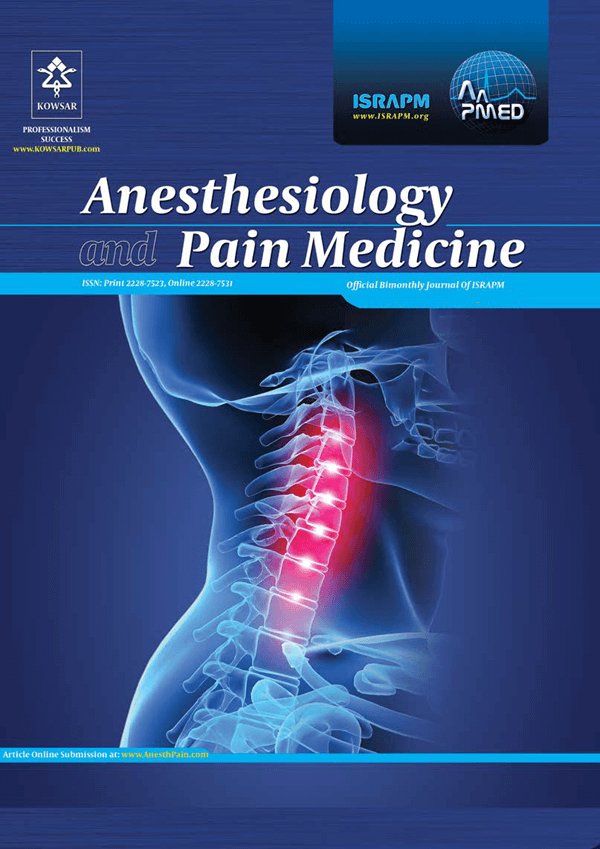
Review Article
Acupuncture is shown to be a beneficial supplementary treatment for chronic abdominal pain, improving patients' quality of life and cutting healthcare costs.
Berger AA, Liu Y, Jin K, Kaneb A, Welschmeyer A, Cornett EM, Kaye AD, Imani F, Khademi SH, Varrassi G, Viswanath O, Urits I

Review Article
Acupuncture has shown promise as a complementary approach in treating chronic abdominal pain, providing symptom relief and improving quality of life.
Berger AA, Liu Y, Jin K, Kaneb A, Welschmeyer A, Cornett EM, Kaye AD, Imani F, Khademi SH, Varrassi G, Viswanath O, Urits I
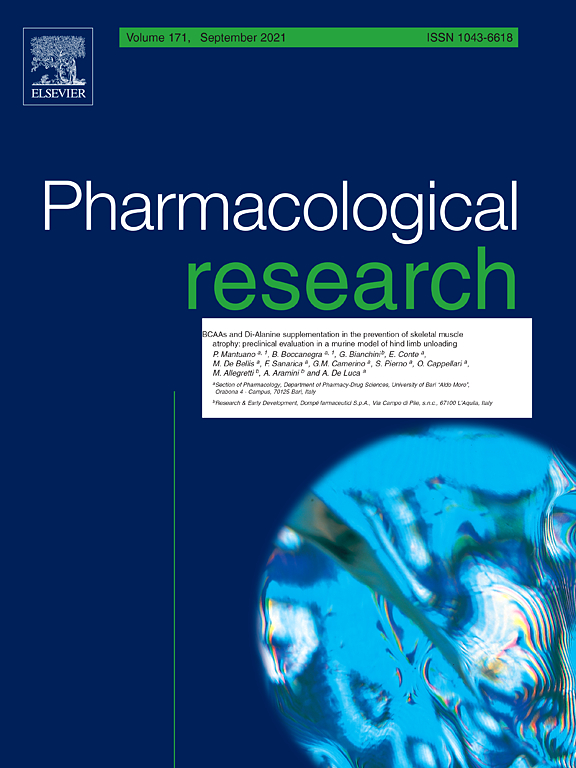
Review Article
Baicalin, a Scutellaria baicalensis extract, has been found to have numerous therapeutic applications in liver and gut diseases by mediating apoptosis and immune response pathways.
Hu Q, Zhang W, Wu Z, Tian X, Xiang J, Li L, Li Z, Peng X, Wei S, Ma X, Zhao Y

Network Pharmacology
Kushen-based traditional Chinese medicine formulations show considerable potential and effectiveness in treating ulcerative colitis with meaningful improvement in clinical remission rate.
Chen M, Ding Y, Tong Z

Experimental Study
Mu Dan Pi (MDP) and its water extract may serve as potential treatment options for inflammatory bowel disease.
Chen TF, Hsu JT, Wu KC, Hsiao CF, Lin JA, Cheng YH, Liu YH, Lee DY, Chang HH, Cho DY, Hsu JL
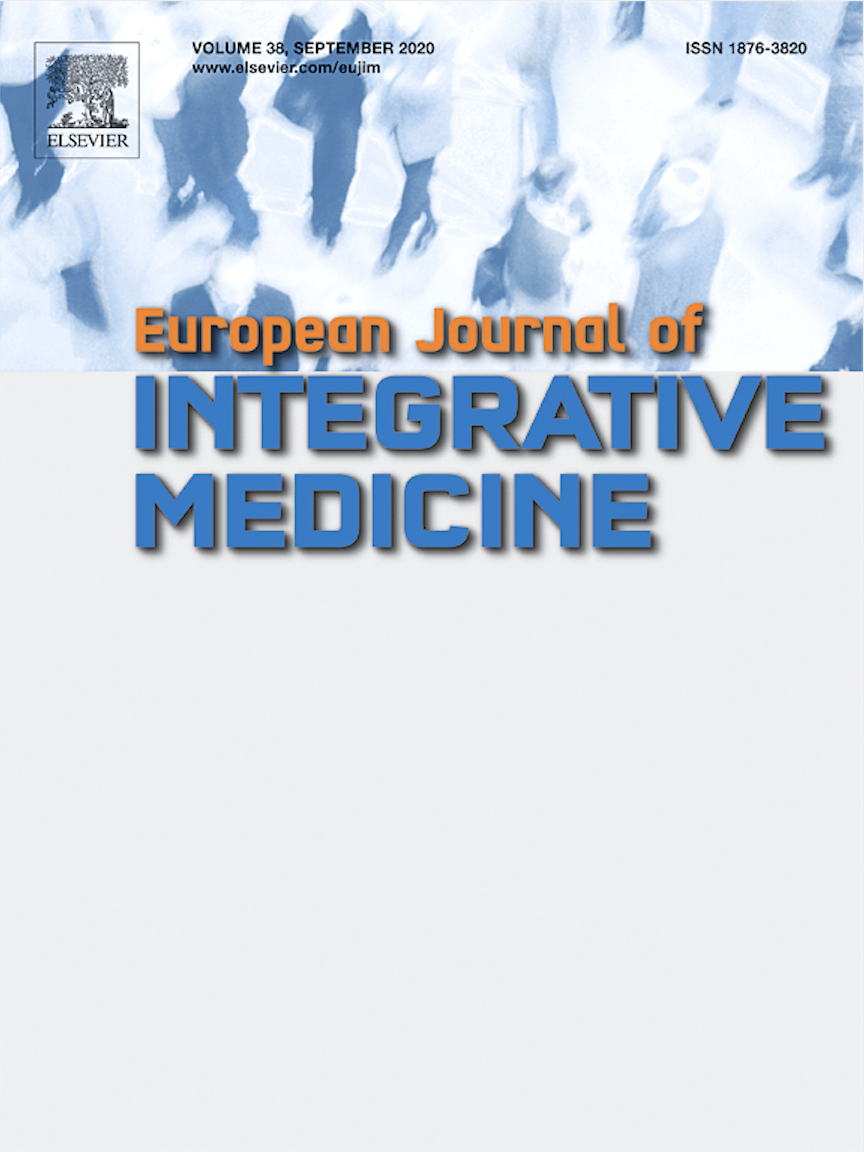
Meta-Analysis
Oral treatment with Six Gentlemen Decoction with Aucklandia and Amomum (SGDAA), a traditional Chinese medicine, significantly improves the treatment of Ulcerative colitis compared to conventional Western medicine.
Yuan H, Zhang T, Huang S, Zhou J, Park S

Review Article
Seaweed extracts and polysaccharides are effective candidates for developing drugs and functional nutrition products to treat inflammatory bowel disease.
Besednova NN, Zaporozhets TS, Kuznetsova TA, Makarenkova ID, Kryzhanovsky SP, Fedyanina LN, Ermakova SP

Clinical Study
Extra virgin olive oil (EVOO) intake can reduce inflammatory markers and improve gastrointestinal symptoms in patients with Ulcerative Colitis.
Morvaridi M, Jafarirad S, Seyedian SS, Alavinejad P, Cheraghian B

Review Article
The diet might influence the onset and pathophysiology of ulcerative colitis, and can potentially be used in its management.
Keshteli AH, Madsen KL, Dieleman LA

Meta-Analysis
Traditional Chinese Medicine (TCM), when used alongside Western Medicine (WM), seems to improve treatment outcomes for Crohn's disease.
Wang Y, Li M, Zha AS
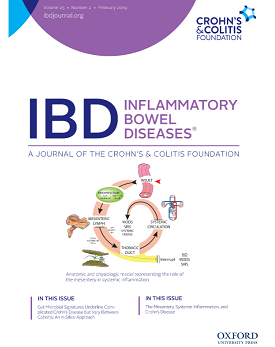
Practice Guideline
Acupuncture has been shown to decrease disease activity and inflammation via increase of vagal activity in inflammatory bowel disease.
Gengqing Song, MD, Claudio Fiocchi, MD, Jean-Paul Achkar, MD

Randomised Controlled Trial
Carrageenan intake can lead to an earlier relapse in patients with ulcerative colitis who are in remission.
Bhattacharyya S, Shumard T, Xie H, Dodda A, Varady KA, Feferman L, Halline AG, Goldstein JL, Hanauer SB, Tobacman JK

Systematic Review
Acupuncture and moxibustion therapy show greater effectiveness than oral sulphasalazine in treating inflammatory bowel diseases.
Ji, J., Lu, Y., Liu, H., Feng, H., Zhang, F., Wu, L., Cui, Y., & Wu, H.
Executive Summary
Write an executive summary in the form of a blog article on the topic of "Research into Chinese medicine treatment for Inflammatory Bowel Disease" summarising the research below and using language that can be easily understood by patients and avoiding medical jargon using a professional and caring tone of voice.
Write an executive summary in the form of a blog article on the topic of "Researched Chinese medicine treatments for Inflammatory Bowel Disease" summarising the research below in an objective and easy to understand way, and using language that can be easily understood by patients. Group the article into Chinese medicine treatments first, followed by nutrition and other treatments. Avoid using medical jargon and use a professional and caring tone of voice.
Write me a concise but easy to understand executive summary on the topic of "Chinese medicine treatments for Inflammatory Bowel Disease" based on the following research that I will give you. Your summary should be 2 paragraphs long in Australian English spelling and include references to the studies.
A Experimental Study published in 2024 in the journal International Journal of Biological Macromolecules found that A polysaccharide from Tremella aurantialba improves ulcerative colitis symptoms by targeting epithelial cell ferroptosis and modulating the gut microbiota. The methodology used in this research involved isolating TA 2-1, a specific polysaccharide from Tremella Aurantialba, and studying its effects on ulcerative colitis. This was done by introducing it to Caco-2 cells that were undergoing ferroptosis and assessing its impact on cell viability. The influence of TA 2-1 was also examined in mice with artificially induced ulcerative colitis, verifying its ameliorating effects in an in-vivo context. The structure of TA 2-1 and its components were analysed and the polysaccharide's interaction with gut microbiota was explored to understand how it might modulate symptoms or prevent cell death. The results of this study showed that TA 2-1 does not only decrease the rate of cell death in epithelial cells undergoing ferroptosis, but it also repairs the intestinal barrier by upregulating specific proteins such as claudin-1 and zonula occludens-1. TA 2-1 was also found to suppress lipid peroxidation, thus inhibiting ferroptosis. Further investigation revealed that TA 2-1 may alleviate ulcerative colitis by influencing the composition or metabolites of gut microbiota. This research offers promising insight into the potential of TA 2-1 in treating ulcerative colitis.
A Randomised Controlled Trial published in 2024 in the journal Scientific Reports found that A combined Mediterranean, low-FODMAP diet along with partial enteral nutrition has shown promise in reducing ulcerative colitis activity and improving patients' quality of life. In the study, fifty patients with active, mild to moderate ulcerative colitis were randomly allotted one of two diets: a combined Mediterranean, low-FODMAP diet supplemented with partial enteral nutrition, or a standard diet. These diets were implemented for a duration of 6 weeks. Before and after the intervention, various indicators of the patients' conditions were measured. These variables included a disease activity index, the patients' quality of life, and concentrations of various inflammatory and oxidative stress factors in the blood. All of these were measured using tested and trustworthy questionnaires, in conjunction with blood sampling. The combined diet was found to result in significantly decreased disease activity index values, compared to both the control diet and the baseline data. Simultaneously, patients on the combined diet reported greater enhancements in their quality of life, compared to both the control group and the initial data. Lastly, the serum level of a protein called "high sensitive C-reactive protein," known to be a general marker of inflammation within the body, was found to be reduced in the combined diet group. However, changes in the serum total antioxidant capacity were found to be statistically insignificant across both groups.
A Review Article published in 2024 in the journal Nutrients found that Carrageenan, a common food additive, potentially exacerbates Inflammatory Bowel Disease (IBD) symptoms by altering gut microbiota, inducing intestinal permeability, and triggering inflammation. The study involved a comprehensive literature review, where the researchers carried out an in-depth analysis of past studies evaluating carrageenan's impact on gut health, particularly in relation to Inflammatory Bowel Disease (IBD). Using predefined search terms, they scoured medical and scientific databases, MEDLINE and SCOPUS. They considered research focusing on carrageenan's effect on the gut microbiota, intestinal permeability, inflammatory processes, its relationship with cancer, and its role as a food additive in the context of autoimmune diseases. The review divulged that degraded carrageenan, as used in animal studies, appeared to promote intestinal ulceration and inflammation, suggesting a potential risk in exacerbating IBD. Additionally, carrageenan also appeared to disrupt gut microbiota, reducing bacterial diversity therein, and increased intestinal permeability, which in turn could possibly contribute to 'leaky gut' syndrome. Interestingly, some studies suggested a possible anti-cancer effect, since carrageenan might inhibit the growth of cancer cells by affecting cell cycle progression. Besides, the additive seemed to elevate glucose intolerance and insulin resistance.
A Animal Study published in 2024 in the journal Nutrients found that Carrageenan, a common food additive, has dual aspects, being both useful in drug delivery and food printing, while potentially harmful via inducing intestinal inflammatory conditions. This study investigates the dual roles of carrageenan, a naturally occurring polysaccharide. It is used in creating edible films and encapsulating drugs, and has potential uses in food printing. Moreover, it can regulate the composition of intestinal microflora, including promoting the increase of Bifidobacterium bacteria. The research shines a light on the harmful side of carrageenan as well by focusing on its interactive effects with intestinal microflora, mucous barrier, and proinflammatory pathways. The study reveals that carrageenan negatively alters intestinal microflora, triggering a breakdown of the mucus barrier, leading to an inflammatory response. This response occurs due to activation of the pro-inflammatory nuclear factor kappa-light-chain-enhancer pathway in the epithelial cells, likely via the mechanism of TLR4 receptor activation, alteration in macrophage activity, production of proinflammatory cytokines, and activation of innate immune pathways. Carrageenan's influence also led to increased levels of Bacteroidetes bacteria, alongside reducing short-chain fatty acid-producing bacteria, ultimately damaging the integrity of the intestinal membrane and reducing the mucin layer. The study finds that those with intestinal inflammation disorders, like Crohn's disease and ulcerative colitis, are particularly vulnerable to these harmful effects.
A Systematic Review published in 2024 in the journal Heliyon found that Acupuncture and moxibustion therapies have shown effectiveness in treating ulcerative colitis according to the summarised-findings of various systematic reviews and meta-analyses. Methodology: This evaluative study used an extensive and systematic methods to search data from seven different databases. The selected data were further refined by using different screening and evaluation frameworks like AMSTAR-2, PRISMA, ROBIS, and GRADE systems. These were used to determine the methodological quality, reporting quality, risk of bias, and the quality of evidence in the selected studies. Discussion of results: After critical evaluation, the study found ten relevant reviews and analyses that showed potential for acupuncture and moxibustion therapies being effective in ulcerative colitis treatment. However, many the identified studies were reported to have several problems in their overall design and quality of outcomes. The researchers therefore stress caution when interpreting these results due to the lack of high-quality evidence in the existing studies.
A Meta-Analysis published in 2024 in the journal SSRN Electronic Journal found that Diverse acupuncture therapies, especially moxibustion, emerged as superior methods for alleviating ulcerative colitis symptoms in clinical practice. Methodology: The researchers carried out a systematic review and network meta-analysis of clinical efficacy of various acupuncture therapies for ulcerative colitis patients. They accomplished this by sourcing for Clinical Randomized Controlled trial articles from databases such as PubMed, Embase, Cochrane Library, and other data knowledge service platforms, all of which were independently reviewed by two researchers. Several quality assessments were made through Review Manager software, and the meta-analysis was conducted with Stata 16 software. Interventions examined in the analysis included acupuncture, moxibustion, acupoint catgut embedding, and combinations of these therapies with Western medicine. Discussion of results: 52 articles encompassing 3924 patients participated in randomized control trials. The investigation revealed a range of interventions, including different acupuncture therapies and combinations of these therapies with Western medicine. Namely, moxibustion, either on its own or combined with Western medicine, consistently surfaced as top-ranked for overall effectiveness and specific outcomes. Moreover, moxibustion displayed impressive performance in reducing adverse reactions and recurrence rates. Thus, various acupuncture therapies were confirmed as safe and effective for the treatment of ulcerative colitis, with moxibustion emerging as the most effective.
A Theoretical Article published in 2023 in the journal Frontiers in Pharmacology found that Traditional Chinese medicine has been found to effectively treat ulcerative colitis by repairing various components of the damaged intestinal mucosal barrier. In the methodology, the study sought to uncover the efficacy of Traditional Chinese medicine (TCM) in treating ulcerative colitis (UC). The research began by acknowledging the key role that damage to the intestinal mucosal barrier plays in the development of UC. It then explored how TCM could combat UC by protecting and repairing various aspects of this barrier including the physical, chemical, immune, and biological barrier. In the results discussion, it was discovered that TCM not only increases the number of intestinal epithelial cells, tight junction proteins, and mucins, but also encourages the proliferation of intestinal stem cells, restores the abundance of the intestinal microbiota, and modulates immunity in the gut. Moreover, the study identified several upstream proteins and signaling pathways that were activated in the process. This gives hope to future treatment plans for UC using TCM, with the study providing a fundamental theoretical basis and new ideas for future investigations.
A Meta-Analysis published in 2023 in the journal Journal of Pharmacopuncture found that Acupuncture combined with moxibustion has shown significant benefits in the treatment of mild to moderate Crohn's disease. In this systematic review, the researchers conducted a comprehensive search of 12 databases for randomized controlled trials on the impact of acupuncture on Crohn's disease. Three independent reviewers assessed the risk of bias for each study. The level of evidence from meta-analyses was evaluated using the Grading of Recommendations, Assessment, Development, and Evaluation methodology. The review included a total of 12 studies. Findings suggest that acupuncture combined with moxibustion, a traditional East Asian treatment involving burning a small bunch of herbs on particular points on the body, had an effect on the treatment outcomes for patients with mild to moderate Crohn's disease when compared to a group given sham acupuncture and sham moxibustion treatments. Notably, findings on the effectiveness of acupuncture treatment only, without the addition of moxibustion, were less clear. It is also important to emphasize that this review was firmly focused on the benefits of the treatment on patients with mild to moderate symptoms of Crohn's disease.
A Meta-Analysis published in 2023 in the journal Medicine found that Acupoint application has been proven to be a safe and effective method for the treatment of ulcerative colitis. The methodology incorporated a systematic review of various databases including China National Knowledge Infrastructure, Chinese Biology Medicine, VIP, Wanfang, Embase, PubMed, the Cochrane Library and Web of Science up to July 2022 to find published randomized controlled trials on the use of acupoint application in treating ulcerative colitis. Meta-analysis and trial sequential analysis were then performed on the selected studies. The results from the 13 analyzed trials involving a total of 878 cases revealed that the use of acupoint application improved the rates of effective clinical comprehensive and syndrome in ulcerative colitis treatment compared to conventional western medicine. The method also showed advantages in increasing interleukin-4 and reducing interferon-gamma. Also noted was that there were no variances seen regarding colonoscopy, pathological examination, and reaction rates when compared with traditional methods. The quality of the evidence used for these conclusions varied, with some being of moderate quality and others deemed low or very low quality.
A Meta-Analysis published in 2023 in the journal Complementary Therapies in Medicine found that Acupuncture demonstrates a positive therapeutic effect on inflammatory bowel disease (IBD) by effectively regulating associated inflammatory factors. Eight electronic databases were utilized in a systematic search for studies that satisfied the pre-defined inclusion parameters. Two impartial reviewers evaluated the quality of the resultant studies and a meta-analysis was then performed to assess the efficacy of acupuncture on IBD and its related inflammatory factors which include TNF-α, IL-1, IL-8, and IL-10. The analysis comprised of four randomized controlled trials that involved a total of 228 patients. The beneficial effects of acupuncture on IBD patients were thoroughly inspected, as well as its ability to regulate levels of specified inflammatory factors. The P values, which refer to the probability that any observed result occurred by chance, were critically assessed for every inflammatory factor - significance was found in the values of TNF-α, IL-8, and IL-10, but not for IL-1. The conclusion drawn was that acupuncture has a positive therapeutic impact on individuals suffering from IBD, and quite importantly, can regulate inflammatory factors in these patients. As a result of these findings, it is suggested that TNF-α, IL-8, and IL-10 are the ideal inflammatory indicators for evaluating the anti-inflammatory response in this patient category.
A Systematic Review published in 2023 in the journal Life found that Seaweed polysaccharides, especially those found in the cell walls of marine algae, hold significant potential as a natural, complementary treatment for Inflammatory Bowel Disease (IBD). The study analysed the therapeutic properties of sulfated polysaccharides, including carrageenan in red algae, ulvan in green algae, and fucoidan in brown algae, which are abundantly present in the cell walls of marine algae. Addressing key IBD pathologic treatment targets, the research explored polysaccharides' effects on inflammatory cytokines, adhesion molecules, intestinal epithelial cells, and intestinal microflora. These therapeutic targets were analyzed with an emphasis on utilizing natural substances like seaweed polysaccharides for improving IBD treatment efficacy. Building upon the theory of a nutritional preventive mechanism for IBD and the restoration of intestinal health, the findings underscore the potent therapeutic capabilities of these natural compounds. Algal polysaccharides were found to have immense potential as a complementary treatment for IBD. It was suggested that these natural substances can be developed into effective drugs and functionally nutritious products, emphasizing a natural approach towards managing this global public health issue.
A Review Article published in 2023 in the journal Chinese Herbal Medicines found that Chinese herbal medicines could potentially relieve ulcerative colitis by moderating the gut microbiota and intestinal immunity loop. The study emphasizes on the possible use of Chinese herbal medicines, which include single herbs, herbal formulas and derived constituents, in treating ulcerative colitis (UC), a recurring inflammatory bowel disease. With a focus on how these medicines interact with and modify the gut microbiota, the mechanism involves regulating the intestinal homeostasis to counter UC. It deals with balancing microbial dysbiosis, or the imbalance of microbes in the body, and abnormal gut immunity, two key initiators of inflammatory responses in UC. The paper reviews several clinical trials which have been conducted, all exhibiting the effectiveness of Chinese herbal medicines on patients diagnosed with UC. In the trials, these derived substances have shown a protective effect against UC, offering the potential possibility of them being explored as conventional methods of UC treatments in the future. Not every trial has resulted in absolute success, but the overall results are promising and indicate a robust potential direction for UC treatment science.
A Meta-Analysis published in 2022 in the journal Pharmacological Research - Modern Chinese Medicine found that Patients with ulcerative colitis (UC) experienced greater clinical improvement and fewer adverse effects when treated with a combination of Traditional Chinese and Western medicine compared to Western medicine alone. With an aim to assess the effectiveness and safety of combined Traditional Chinese and Western medicine (referred as ITCMWM hereafter) in treating ulcerative colitis, a systematic review was conducted following a registered protocol. Data was sourced from numerous databases including PubMed, Cochrane Library, Embase, the Chinese Biomedical Literature Database (CBM), the China National Knowledge Infrastructure (CNKI), and Wanfang Data. The review incorporated only randomized controlled trials comparing ITCMWM with stand-alone Western medicine. A total of 3957 patients from 38 studies, equally divided into the ITCMWM group and control group, were considered, and the risk ratios were calculated. The results from the aggregated studies show that patients in the ITCMWM group reported a significantly better clinical outcome and witnessed fewer adverse events when compared to patients on stand-alone Western medicine. It was observed that the combination of both Traditional Chinese and Western treatments clearly outperformed Western medicine treatment alone in terms of overall effectiveness on ulcerative colitis. Additionally, the safety level was nearly equal for both treatment methods.
A Review Article published in 2022 in the journal Journal of Functional Foods found that Polysaccharides from natural food sources like fungi and plants can significantly enhance intestinal health and prevent ulcerative colitis (UC) through various physiological activities. The study primarily focused on the role of natural food polysaccharides in promoting intestinal health. Derived from sources like edible fungi and plants, these substances exhibit remarkable potential in preventing UC, a common inflammatory bowel disease. The researchers have investigated their action mechanism which mainly involved promoting beneficial bacteria, reducing harmful bacteria, increasing Short Chain Fatty Acids (SCFA) content, and exerting prebiotic effects. The polysaccharides' ability to prevent UC by blocking certain cellular pathways, regulating tight junctions, repairing the intestinal barrier function, inhibiting oxidative stress, and mitigating oxidative damage to the colon tissue was also explored. The structure of these polysacaccharides and their relationship to the prevention of UC were however not covered fully in the study. The obtained results deliver a profound understanding of the preventive effects of natural food polysaccharides on UC. Their capacity to promote beneficial bacteria while reducing the harmful species has been emphasized. They were also found to increase the content of SCFAs and act as prebiotics. Additionally, their role in blocking certain signaling pathways and thus preventing oxidative stress and damage further presents them as effective defense agents against UC. The observations related to the relationship between the structure of these polysaccharides and the prevention of UC were less conclusive. This study, however, did note a lacking of clear connection between the molecular weight of polysaccharides and their preventive effects, leaving room for future extensive study in this area.
A Randomised Controlled Trial published in 2022 in the journal Nutrients found that Dietary modifications, combining increased intake of anti-inflammatory foods and decreased intake of pro-inflammatory foods, effectively impede subclinical inflammation in ulcerative colitis patients in clinical remission. The study conducted a 6-month open-label, randomized, placebo-controlled trial on adult patients with ulcerative colitis who were in clinical remission. The patients were randomly assigned to follow either an Anti-inflammatory Diet (AID) or Canada’s Food Guide (CFG). The AID was designed to raise the consumption of dietary fiber, probiotics, antioxidants, and omega-3 fatty acids, while reducing the intake of red meat, processed meat, and added sugars. Stool, urine, and serum samples were collected for fecal calprotectin and microbial analysis as well as metabolomic analysis at both the study's start and endpoint. A total of 53 patients were randomized in the study. The evaluation of the patients’ response to the intervention showed a higher subclinical response in the AID group. Patients in the AID group were found to have a higher intake of specific nutrients and foods such as zinc, phosphorus, selenium, yogurt, and seafood compared to the control group. The AID adherence was related to significant changes in the metabolome, with a decrease in fecal acetone and xanthine levels and an increase in fecal taurine and urinary carnosine and p-hydroxybenzoic acid levels. The AID subjects also exhibited increases in specific fecal bacterial families. In conclusion, dietary modifications involving the increased intake of anti-inflammatory foods combined with a decreased intake of pro-inflammatory foods were associated with metabolic and microbial changes and were effective in preventing subclinical inflammation in these patients.
A Review Article published in 2022 in the journal Phytomedicine found that Chinese Herbal Medicine Prescriptions (CHMPs) have demonstrated to be potentially effective in managing Inflammatory Bowel Disease (IBD) with a comprehensive, holistic approach. In their methodology, the authors reviewed both preclinical and clinical researches to evaluate the effectiveness of CHMPs in treating IBD. They performed screenings of articles that highlighted the use of CHMP as a treatment option for IBD, giving them an insight into the complexity of the disease and the sophistication of CHMP treatments. Subsequently, they conducted an umbrella review of multiple meta-analyses linked to CHMPs to comprehend the efficacy of these herbal prescriptions in a clinical setting; they narrowed down from 1174 records to 12 substantial references for the review. In discussing their results, the authors analyzed a variety of 14 CHMPs that have a historical usage background and discussed their respective mechanisms of action. They delve into the inherent characteristics of the herbs used to provide a comprehensive understanding of the CHMPs. Recognizing the holistic nature being integral to CHMP, the authors discussed how the implementation of omics, studying the gut microbiome, and network pharmacology can enhance the understanding of CHMPs' bioactions in treating IBD.
A Cohort Study published in 2022 in the journal Clinical Gastroenterology and Hepatology found that Higher consumption of ultra-processed food is linked to an increased risk of developing Crohn's disease, with no consistent connection observed with ulcerative colitis. A prospective cohort study was conducted using three nationwide cohorts of health professionals in the United States. The study utilized self-reported consumption of ultra-processed foods to assess its association with the risk of Crohn's disease and ulcerative colitis. It involved 245,112 participants and spanned several years of observation. The analysis primarily leveraged Cox proportional hazards models to estimate hazard ratios for Crohn's disease and ulcerative colitis while adjusting for potential confounding factors. The study observed a total of 369 cases of Crohn's disease and 488 cases of ulcerative colitis over the period of follow-up. The participants in the highest quartile of ultra-processed food consumption experienced a noteworthy surge in the risk of developing Crohn's disease. Ultra-processed breads, breakfast foods, frozen or shelf-stable ready-to-eat or heat meals, and certain spreads and gravies showed the strongest positive correlations with Crohn's disease risk. However, no clear association was seen between ultra-processed food intake and the incidence of ulcerative colitis.
A Cohort Study published in 2022 in the journal Journal of Ethnopharmacology found that Shenling Baizhu San (SBS), combined with mesalamine, can treat ulcerative colitis effectively by changing gut microbiota structures and increasing tryptophan metabolite levels. The methodology involved conducting a prospective cohort study to explore the potential therapeutic effects of SBS, used as a complementary medicine with mesalamine, on ulcerative colitis patients. There were 48 patients included in the study, out of which 24 were a part of the control group and given just mesalamine, while the remaining patients in the experimental group were administered mesalamine along with SBS. The efficacy of these treatments was evaluated after an elapsed period of 8 weeks. The study utilized procedures like 16S rRNA sequencing to observe the structures of gut microbiota (GMB), and UPLC-MS/MS to analyze microbial tryptophan metabolites. In terms of results discussion, the study noticed that the combination of SBS and mesalamine significantly enhanced the clinical symptoms of ulcerative colitis. This was observed through mucosal healing and reduced damage to the colon that the medicinal combination induced. The research also highlighted a novel discovery, the alteration of gut microbiota structures, and an observable increase in microbial levels of tryptophan metabolites when both SBS and mesalamine were used. This led to the conclusion that SBS acted as an effective supplementary therapy to the standard treatment, easing ulcerative colitis through an identified GMB-tryptophan metabolite axis.
A Review Article published in 2022 in the journal Chinese Medicine found that Chinese herbal medicine interventions, particularly those based on the Bai-Tou-Weng-Tang and Shen-Ling-Bai-Zhu-San formulas, show promise in treating Ulcerative Colitis. This study analyzed Ulcerative Colitis clinical trials that used Chinese Herbal Medicine (CHM) interventions by systematically searching seven electronic databases for articles published in English and Chinese until November 25, 2020. The focus was on different CHM treatments, including both single herbs and CHM formulas. Descriptive statistics were utilized to portray the characteristics of these studies, along with collecting commonly Chinese Medicine (CM) patterns of UC and frequently used CHM herbs and formulas. The data from a total of 2311 studies were compiled, most of which were Randomized Controlled Trials (RCTs) that utilized CHM formulas. Findings revealed that the most commonly reported CM pattern in UC was 'Large Intestine Dampness-Heat', with 'Spleen Deficiency' being the basic CM pattern-type reported. Top CHM treatment formulas included Bai-Tou-Weng-Tang and Shen-Ling-Bai-Zhu-San. The most frequently used single medicinals were Huang Lian and Bai Zhu. Common Western medicine compounds used in tandem with CHM treatments were Sulfasalazine and Mesalazine.
A Review Article published in 2022 in the journal The American Journal of Chinese Medicine found that Acupuncture shows promising results in managing autoimmune diseases by potentially regulating immune responses. The methodology of the study involved a comprehensive review of how acupuncture, a form of traditional Chinese medicine, may be employed as a treatment method for autoimmune diseases such as multiple sclerosis, rheumatoid arthritis, and inflammatory bowel disease. The research was based on existing knowledge and accumulating data, investigating the role of acupuncture in regulating immune responses during these conditions. The discussion of the results revealed that acupuncture showed promise in managing these diseases. It was noted that the positive outcomes observed might be linked to the potential of acupuncture to regulate abnormal immune responses which are characteristic of autoimmune diseases. Despite the fact that the precise mechanism through which this achieved is not fully understood, the findings indicate a promising alternative method of managing autoimmune conditions.
A Meta-Analysis published in 2022 in the journal Frontiers in Pharmacology found that Probiotics combined with traditional Chinese medicine have shown higher rates of efficiency in the treatment of ulcerative colitis than when each is used individually. For the methodology, the researchers utilized a comprehensive search of multiple databases such as Pubmed, EMBASE, Cochrane library, China Academic Journals, Wan-fang database, Chinese biomedical literature service system, and Chinese Science and Technology Journals. They designed subgroup analysis in alignment with distinct control drugs, treatment lengths, and types of probiotics, using Review Manager software for statistical analysis. In discussing the results, the study analyzed fourteen original studies containing over a thousand patients. It concluded that the combination of probiotics with traditional Chinese medicine was more effective than 5-aminosalicylic acid, probiotics, or traditional Chinese medicine used individually. Further, this combination was found to suppress intestinal inflammation, diminish the frequency of recurrence, and lower the occurrence of adverse events. The results indicated that a mixture of different probiotics was more effective than a single strain.
A Randomised Controlled Trial published in 2022 in the journal EClinicalMedicine found that Acupuncture effectively induced and sustained remission in active Crohn's disease patients, linked to an increase in anti-inflammatory gut bacteria and improved intestinal barrier. In a 48-week randomized, sham controlled, parallel-group clinical trial conducted at a Chinese tertiary outpatient clinic, 66 drug-resistant, mild to moderately active Crohn's disease patients were randomly assigned equally to a control or acupuncture plus moxibustion treatment group. Three treatment sessions were provided weekly for 12 weeks, followed by 36 weeks of follow-up. The acupuncture treatment was significantly more effective than the sham treatment in terms of clinical remission and response rates by week 12, results which were maintained at week 48. The acupuncture group also displayed lower Crohn's disease activity indices and C-reactive protein levels and a decreased recurrence rate. Post-treatment, this group demonstrated an increase in the diversity and relative abundance of intestinal microbiota, particularly anti-inflammatory bacteria, as well as reduced plasma levels of diamine oxidase, lipopolysaccharide, and Th1/Th17 related cytokines.
A Review Article published in 2022 in the journal Evidence-Based Complementary and Alternative Medicine found that Acupuncture can regulate both innate and adaptive immunity of IBD patients, including the balance of Th17/Treg and Th1/Th2 cells, and also modulate intestinal flora. The methodology of the research revolved around a review of existing studies related to the treatment of Inflammatory Bowel Disease (IBD) via acupuncture. The broad scope of exploration focused on the effects of acupuncture on the immunomodulatory mechanism inherent in these patients. The review pursued a detailed study of how acupuncture directly influenced both the innate and adaptive immunity systems in IBD patients as well as its regulation on their intestinal flora. The results discussion revealed that acupuncture had multiple immunomodulatory effects on IBD patients. On one hand, it influenced their innate immunity by regulating elements such as their intestinal epithelial barriers, toll-like receptors, NLRP3 inflammasomes, oxidative stress, and endoplasmic reticulum stress. On the other hand, it affected their adaptive immunity by modulating the balance of Th17/Treg and Th1/Th2 cells. Furthermore, an interesting revelation from the study was that acupuncture could also significantly regulate the intestinal flora of the patients.
A Review Article published in 2022 in the journal Critical Reviews in Food Science and Nutrition found that Goji berries, notably their polysaccharides, exhibit protective effects against inflammatory bowel disease through the preservation of healthy gut microbiota. The review encompassed an in-depth analysis of current literature specially focusing on the role of goji berry and its important functional constituents in countering Inflammatory Bowel Disease (IBD). The core attentiveness of the research is directed towards understanding the interplay between goji berries, particularly their polysaccharides, and gut microbiota. The goji berries’ protective effects were evaluated, focusing on how they curb disruption in gut microbiota, a common facet in IBD. The review concluded that goji berries, especially their polysaccharides, demonstrated appreciable benefits in averting gut microbiota disturbances seen with IBD, thus protecting against this condition. These natural substances, present in goji berries, function as prebiotics, which maintain a balanced gut microbial ecosystem. The research further revealed that proper functioning of gut microbiota and their metabolites was a crucial element in mediating these beneficial effects against IBD, thus cementing the role of dietary interventions in managing diseases linked with gut health.
A Systematic Review published in 2021 in the journal Phytomedicine found that Chinese medicine's unique immune regulation, intestinal flora regulation, and improved intestinal barrier function offer new approaches to managing chronic Inflammatory Bowel Disease. The study involved a comprehensive review of literature from peer-reviewed and clinical databases such as PubMed, Web of Science, ClinicalTrials.gov, MEDLINE, EMBASE, Springer LINK, Wan-fang database, the Chinese Biomedicine Database, and the China National Knowledge Infrastructure. Keywords such as inflammatory bowel disease (including Ulcerative colitis or Crohn's disease) and Chinese medicine were used, focusing on studies conducted between 1997 and 2021, while excluding those that did not meet specific criteria. The review primarily focused on the pathogenesis of IBD and how Chinese medicine plays a role in its treatment, particularly in immune regulation, intestinal flora regulation, and improvement of intestinal barrier function. The collective findings present exciting progress in understanding how multi-herbal Chinese medicine can potentially contribute to the treatment of IBD.
A Systematic Review published in 2021 in the journal Phytomedicine found that Chinese medicine presents unique advantages in managing Inflammatory Bowel Disease (IBD) through immune regulation, intestinal flora regulation, and improvement of intestinal barrier function. In their research, the researchers conducted a systematic review of studies that assessed the effects and mechanics of Chinese medicine in treating IBD. They performed a literature search on various peer-reviewed and clinical databases, including reputable international and Chinese sources. The keywords used for this comprehensive search included "inflammatory bowel disease", "Ulcerative colitis", "Crohn's disease", and "Chinese medicine". Only articles from the period of 1997-2021 that met their exclusion criteria were chosen for the review. The compiled research illuminates recent progression in using Chinese medicine to treat IBD. Certain studies specifically look at how Chinese medicine impacts immune regulation, intestinal flora regulation, and the enhancement of intestinal barrier function in IBD patients. This information could serve as a key reference for further exploration regarding the potential of classical multi-herbal Chinese medicine in treating IBD.
A Meta-Analysis published in 2021 in the journal BMC Complementary Medicine and Therapies found that Traditional Chinese Medicine may potentially be a viable treatment option for ulcerative colitis, but its effectiveness varies depending on the method of administration applied. The authors conducted an extensive electronic literature search across six databases to find systematic reviews about the use of various Chinese medicine therapies for ulcerative colitis. They evaluated the reviews based on the methodology used for assessing their quality. Nine interventions fit the eligibility criteria from the 73 systematic reviews used for the study. It was found that the disease stages of patients with ulcerative colitis ranged greatly and therefore, influenced the outcomes of various treatment approaches. The authors found that the results mostly favored the method of intervention used, with oral administration combined with an enema being the most widely preferred administration route. Notably, many of the reviews didn't report essential factors such as the disease's location, the classification, and the intervention's route of administration. The current evidence indicates that while TCM could be a treatment for UC, it should be applied cautiously due to these inconsistencies.
A Randomised Controlled Trial published in 2021 in the journal Biomedicine & Pharmacotherapy found that Qing-Chang-Hua-Shi (QCHS) granules, a Chinese herbal formula, have shown significant efficacy in improving clinical remission and mucosal healing in moderately active ulcerative colitis patients. The double-blind, randomized and placebo-controlled study was performed across multiple centers, involving patients with moderately active ulcerative colitis who had been unresponsive to mesalazine therapy for a month. The participants were randomly divided into groups, where one group received a daily dose of 125g QCHS granules along with continual 5-Aminosalicylate(5-ASA) therapy, and the other group received a placebo with the same color, taste and texture as QCHS granules, also with 5-ASA therapy. The interpretation of the reported results revealed that both clinical remission and response were observed more substantially in the group treated with QCHS granules compared to the placebo group. Moreover, a higher rate of remission in mucus/bloody stools was seen in patients treated with QCHS granules versus the placebo. Overall, the adverse event rates did not significantly deviate between the QCHS granule and the placebo groups, indicating a similar level of safety for both treatments.
A Systematic Review published in 2021 in the journal International Journal of Biological Macromolecules found that Tremella fuciformis polysaccharides effectively reduce inflammation in ulcerative colitis, promoting healing by restoring intestinal and mucus barrier functions. In this study, two models were utilized to investigate the impacts of Tremella fuciformis polysaccharides on ulcerative colitis: a dextran sodium sulfate-induced mice model and a lipopolysaccharide-stimulated model using Caco-2 cells. First, the dextran sodium sulfate-induced mice ulcerative colitis model was administered with the Tremella fuciformis polysaccharides. Effects were observed across several indicators such as body weight, colon length, and thickness, as well as intestinal permeability. Following that, histopathological analysis and electron microscope examinations helped delve deeper into the relationship, uncovering a reduction in inflammatory cell infiltration and a restoration of the intestinal epithelial barrier integrity. The lipopolysaccharide-stimulated Caco-2 cells model was used to further understand the role of these polysaccharides in reducing expressions of pro-inflammatory cytokines and increasing expressions related to intestinal barrier and mucus barrier.
A Review Article published in 2021 in the journal Anesthesiology and Pain Medicine found that Acupuncture is shown to be a beneficial supplementary treatment for chronic abdominal pain, improving patients' quality of life and cutting healthcare costs. The research explores the utilization of acupuncture to treat chronic abdominal pain, a condition widespread and chiefly affected by Irritable Bowel Syndrome (IBS) and Inflammatory Bowel Disease (IBD). This type of pain is defined by three episodes of severe abdominal pain over a span of three months. While its causes are still being looked into, it is believed to be an outcome of the chronicity of acute pain or chronic pain syndromes. A wide array of treatments for these conditions exist but often fall short of fully controlling the symptoms. Acupuncture, a form of traditional Chinese medicine based on the concept of rebalancing the patient's Qi, or Ying/Yang balance, is being investigated as a complementary method. In terms of results, acupuncture has proven effective in providing additional alleviation of symptoms, leading to improved quality of life and reduced disability for patients affected by chronic abdominal pain. While it's not a curative solution, it aids in minimizing symptoms and enhancing overall life quality. It is also considered a safe and inexpensive alternative that may result in significant healthcare savings. Notably, it's not recommended for all patients; its benefits seem to be more pronounced in a select group.
A Review Article published in 2021 in the journal Anesthesiology and Pain Medicine found that Acupuncture has shown promise as a complementary approach in treating chronic abdominal pain, providing symptom relief and improving quality of life. The methodology revolves around applying acupuncture, a form of integrative medicine from traditional Chinese medicine, to patients suffering from chronic abdominal pain. This pain is defined as having three severe abdominal pain instances over three months, often caused by chronic acute pain or chronic pain syndromes, primarily IBS and IBD. Despite existing treatments, these often fail to control the symptoms completely, leaving room for complementary methods like acupuncture. This practice is based on rebalancing a patient's Qi, or Ying/Yang balance, previously shown effective in treating various conditions. The results reveal that acupuncture can serve as a crucial adjunct in managing chronic abdominal pain. It is not a cure, but it significantly aids in symptom reduction and quality of life improvement. Particularly for those affected by IBS and IBD, acupuncture offers extra relief from lingering symptoms, thereby improving quality of life, decreasing disability, and potentially contributing to healthcare cost savings. Acupuncture has emerged as a safe, inexpensive, and beneficial approach for selected patients suffering from chronic abdominal pain.
A Review Article published in 2021 in the journal Pharmacological Research found that Baicalin, a Scutellaria baicalensis extract, has been found to have numerous therapeutic applications in liver and gut diseases by mediating apoptosis and immune response pathways. High-throughput screening and bioinformatics technology were utilized in the extraction and study of baicalin from the dried root of Scutellaria baicalensis Georgi, an herb traditionally used in Chinese medicine. The research sought to understand the biological action of baicalin, particularly how it affects diseases related to the liver and gut. The effects were associated mainly with downstream apoptosis and immune response pathways, which are induced by upstream oxidative stress and inflammation. In the discussion of the resultant findings, it was identified that baicalin engages various key factors during oxidative stress regulation. These include PI3K/Akt/NRF2, Keap-1, NF-κB, and HO-1, contributing to the healing effects of baicalin on non-alcoholic fatty liver disease/non-alcoholic steatohepatitis, ulcerative colitis, and cholestasis. Further, it was discovered that baicalin plays a therapeutic role in regulating inflammatory response and apoptosis pathways. This ability aids in the alleviation of liver diseases and suppression of hepatocellular carcinoma. Baicalin was also found to regulate the intestinal flora by promoting the production of short-chain fatty acids, shedding new light on the full range of baicalin's pharmacological effects.
A Network Pharmacology published in 2020 in the journal Frontiers in Pharmacology found that Kushen-based traditional Chinese medicine formulations show considerable potential and effectiveness in treating ulcerative colitis with meaningful improvement in clinical remission rate. In the study, researchers sourced multiple databases, specifically PubMed, EMBASE, Chinese Biomedical Literature database, China National Knowledge Infrastructure database, Chongqing VIP Information database, and Wanfang database, to find articles published from January 2000 to July 2020. These articles focused on randomized controlled trials using Kushen-based traditional Chinese medicine formulations for ulcerative colitis treatment. Additionally, they utilized a network pharmacology approach to discern the potential pathways of Kushen's influence against ulcerative colitis. Regarding the results, eight randomized controlled trials encompassing a total of 983 subjects were analyzed. When compared to subjects treated with standard therapy, patients who underwent treatment with Kushen-based formulations showed an increased clinical remission rate alongside a decreased incidence of adverse events. A detailed component-target-pathway network associated with Kushen treatment against ulcerative colitis was established. This highlighted five primary components, three primary targets, and one crucial therapeutic pathway.
A Experimental Study published in 2020 in the journal Scientific Reports found that Mu Dan Pi (MDP) and its water extract may serve as potential treatment options for inflammatory bowel disease. In the study, the anti-inflammatory impacts of Mu Dan Pi and its primary active compounds on inflammatory bowel disease were assessed systematically. Screening was done via NF-κB and interferon regulatory factor reporter assays in THP-1 cells, stimulated with particular gene activators. This process was later verified in bone marrow-derived macrophages. The water extract of Mu Dan Pi considerably hindered the activation of NF-κB and IRF reporters, modifying downstream signaling pathways and decreasing the production of IL-6 and TNF-α, based on dosage. In subsequent observations, among the five known active components identified within Mu Dan Pi, one component known as PGG distinguished itself as the most effective at inhibiting reporters and reducing IL-6 and TNF-α. On a clinical application level, both MDP powder and its water extract mitigated colitis and pathological changes in mice, although PGG did not present any significant reduction. This suggests that the anti-inflammatory qualities of Mu Dan Pi may hold therapeutic potential for inflammatory bowel disease.
A Meta-Analysis published in 2020 in the journal European Journal of Integrative Medicine found that Oral treatment with Six Gentlemen Decoction with Aucklandia and Amomum (SGDAA), a traditional Chinese medicine, significantly improves the treatment of Ulcerative colitis compared to conventional Western medicine. In the method of this research, Randomized controlled trials (RCTs) spanning the period from January 1960 to October 2019 were analyzed. These trials examined the use of the traditional Chinese medicine in question for treating ulcerative colitis. This extensive data was drawn from numerous scientific and medical databases in English, Korean, and Chinese. The resulting information was then processed through a software named RevMan 5.3 to conduct a meta-analysis. Furthermore, the studies were scrutinized based on their homogeneity and the odds ratios and confidence intervals were evaluated for accuracy and validity of each. In the exploration of the results, seven metanalysed studies (involving a total of 614 colitis patients) showed that the traditional Chinese medicine SGDAA had a significantly greater effect in treating ulcerative colitis than conventional western medicine. This conclusion was drawn from the comparative analysis of the SGDAA group (consisting of 308 patients) and the control group (composed of 306 patients receiving conventional Western medicine or another Chinese medicine). The analysis showed the SGDAA treatment was significantly more effective especially when the treatment exceeded 4 and 12 weeks. The beneficial impact of the SGDAA treatment in ulcerative colitis was seen in the forms of effective response and curative response.
A Review Article published in 2020 in the journal Marine Drugs found that Seaweed extracts and polysaccharides are effective candidates for developing drugs and functional nutrition products to treat inflammatory bowel disease. The methodology summarized in this research paper encompasses examining natural compounds, specifically derived from seaweed, which could potentially serve as therapeutic agents for IBD. Concentrating on the unique structural features of algal polysaccharides, the researchers observed their interaction with several factors associated with IBD, such as proinflammatory cytokines, chemokines, adhesion molecules, intestinal epithelial cells, and reactive oxygen and nitrogen. In discussing the results, it was seen that the seaweed extracts and polysaccharides show promise in influencing key therapeutic targets related to IBD, suggesting their potential utility in the development of treatment options for patients. These include drugs, biological food additives, and functional nutrition products. This conclusion was drawn by noting the influence of these extracts and polysaccharides on immune and epithelial cells as well as intestinal microorganisms.
A Clinical Study published in 2020 in the journal European Journal of Clinical Nutrition found that Extra virgin olive oil (EVOO) intake can reduce inflammatory markers and improve gastrointestinal symptoms in patients with Ulcerative Colitis. In the methodology of this study, forty patients suffering from Ulcerative Colitis participated in a crossover clinical trial, where the effects of extra virgin olive oil were compared with canola oil as part of their diet. Blood samples were collected before and after a 20-day intervention period, and measures such as disease activity and gastrointestinal symptoms were evaluated using established rating scales. In terms of results, the consumption of EVOO showed a significant decrease in recognized inflammatory markers. Furthermore, symptoms such as bloating, constipation, urgent bowel movements, and incomplete bowel evacuation were reported to have been significantly reduced following the consumption of EVOO. Therefore, this study suggests that extra virgin olive oil can offer significant benefits as a complementary medicine in the treatment of Ulcerative Colitis.
A Review Article published in 2019 in the journal Nutrients found that The diet might influence the onset and pathophysiology of ulcerative colitis, and can potentially be used in its management. The methodology used in reviewed studies relies typically on both epidemiological and experimental approaches to examine the relationship between diet and the onset and progression of ulcerative colitis. A combination of observational data from patients and well-structured randomized control trials have been undertaken, investigating both the potential causative effects of diet and its role in symptom management. In discussing the results, it is suggested that dietary factors do play a significant role in both the onset and the progression of ulcerative colitis. Though more data is needed through further trials, preliminarily, the manipulation of diet appears to have potential in managing the disease, indicating that dietary changes could either alleviate symptoms or trigger disease relapse. This points to an important role of diet in the approach to ulcerative colitis, a significant divergence from previous understandings of the disease.
A Meta-Analysis published in 2019 in the journal Evidence-Based Complementary and Alternative Medicine found that Traditional Chinese Medicine (TCM), when used alongside Western Medicine (WM), seems to improve treatment outcomes for Crohn's disease. The methodology used in this study was a comprehensive search of several significant scientific and medical databases including Pubmed, Embase, Medline, Web of Science, among others, up until October 2018. The researchers assessed the quality of randomized clinical trials that met their specific inclusion criteria and extracted data according to the Cochrane Review Handbook v5.0 guidelines. They analyzed the outcomes using the software Stata 12.0 for a meta-analysis, focusing on twelve selected randomized controlled trials. The trials were, however, deemed of low methodological quality. The study looked at the outcomes of Traditional Chinese and Western Medicine treatment in comparison to Western Medicine alone, across multiple efficacy indicators. This review found that TCM used as an adjunctive therapy to WM was superior to WM alone in inducing remission in Crohn's patients. The results were noticeably better in terms of overall effective rate, maintenance of remission, reduction of C-reactive protein and erythrocyte sedimentation rate, and in reducing clinical scores. Additionally, the frequency of adverse events decreased. Mucosal healing improved in both the TCM-WM and the WM only groups, but no notable differences were present between these two approaches. Still, there was some sign of publication bias in the studies towards efficacy, adverse reactions, mucosal healing, and recurrence rate.
A Practice Guideline published in 2018 in the journal Inflammatory Bowel Diseases found that Acupuncture has been shown to decrease disease activity and inflammation via increase of vagal activity in inflammatory bowel disease. In this review, we discuss the history, theory, and methodology of acupuncture and review potentially beneficial mechanisms of action of acupuncture for managing inflammatory bowel disease. Acupuncture has been shown to decrease disease activity and inflammation via increase of vagal activity in inflammatory bowel disease. Acupuncture has demonstrated beneficial roles in the regulation of gut dysbiosis, intestinal barrier function, visceral hypersensitivity, gut motor dysfunction, depression/anxiety, and pain, all of which are factors that can significantly impact quality of life in patients with inflammatory bowel disease.
A Randomised Controlled Trial published in 2017 in the journal Nutrition and Healthy Aging found that Carrageenan intake can lead to an earlier relapse in patients with ulcerative colitis who are in remission. In the methods employed, a clinical trial was carried out to determine if ulcerative colitis patients could avoid or defer relapse by following a diet devoid of carrageenan. Participants were educated about the no-carrageenan diet, and then divided into two groups - one receiving capsules containing carrageenan and the other receiving placebo capsules. The amount of carrageenan in the capsules was less than the average daily dietary intake. Relapses were defined by a rise of two or more points on the Simple Clinical Colitis Activity Index and the need for enhanced ulcerative colitis treatment. Over the course of a year, participants were monitored every two weeks via phone calls. In the research results, it was found that out of twelve patients, those who ingested carrageenan capsules had a higher relapse rate. Notably, none of those who took the placebo experienced a relapse. The group exposed to carrageenan exhibited increased levels of inflammation indicators - the Interleukin-6 and the fecal calprotectin biomarkers - by the end of their participation in the study. There was no such increase observed in the placebo group.
A Systematic Review published in 2013 in the journal Evidence-Based Complementary and Alternative Medicine found that Acupuncture and moxibustion therapy show greater effectiveness than oral sulphasalazine in treating inflammatory bowel diseases. For the methodology, seven significant databases, both domestic and international, were meticulously searched to accumulate and examine randomized controlled trials (RCTs). These trials specifically compared acupuncture and moxibustion as the main intervention to pharmacotherapy in treating Inflammatory bowel diseases (IBD). In total, 43 RCTs were incorporated and examined, 10 of which distinctly compared oral sulphasalazine with acupuncture or/and moxibustion treatments. In regards to the results received, the study found that acupuncture and moxibustion therapy displayed superior results when compared with oral sulphasalazine. This conclusion is drawn from the meta-analysis of the 10 trials focusing specifically on these treatments. Even though the systemic review presented several limitations and a definitive conclusion wasn't reached, it still laid groundwork for the potential effectiveness of acupuncture and moxibustion therapy in managing Inflammatory bowel diseases.
Moderation Tools
Topic
Sign In
Users not signed in are limited to viewing the 5 most recent items of content.